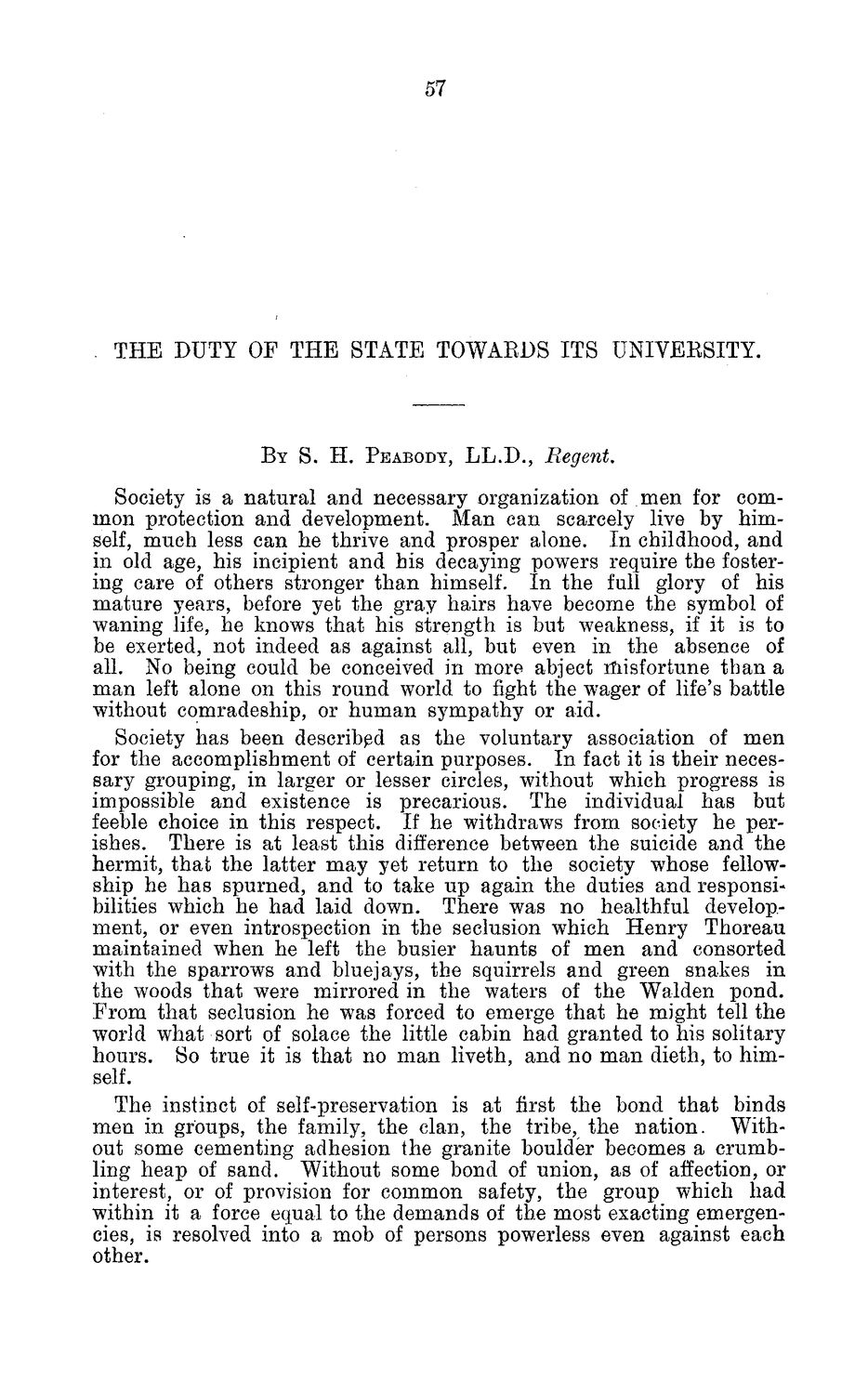| |
| |
Caption: Board of Trustees Minutes - 1884
This is a reduced-resolution page image for fast online browsing.

EXTRACTED TEXT FROM PAGE:
m THE DUTY OP THE STATE TOWARDS ITS UNIVERSITY. BY S. H. PEABODY, LL.D., Regent, Society is a natural and necessary organization of men for common protection and development. Man can scarcely live by himself, much less can he thrive and prosper alone. In childhood, and in old age, his incipient and his decaying powers require the fostering care of others stronger than himself. In the full glory of his mature years, before yefc the gray hairs have become the symbol of waning life, he knows that his strength is but weakness, if it is to be exerted, not indeed as against all, but even in the absence of all. No being could be conceived in more abject iliisfortune than a man left alone on this round world to fight the wager of life's battle without comradeship, or human sympathy or aid. Society has been described as the voluntary association of men for the accomplishment of certain purposes. In fact it is their necessary grouping, in larger or lesser circles, without which progress is impossible and existence is precarious. The individual has but feeble choice in this respect. If he withdraws from society he perishes. There is at least this difference between the suicide and the hermit, that the latter may yet return to the society whose fellowship he has spurned, and to take up again the duties and responsibilities which he had laid down. There was no healthful development, or even introspection in the seclusion which Henry Thoreau maintained when he left the busier haunts of men and consorted with the sparrows and bluejays, the squirrels and green snakes in the woods that were mirrored in the waters of the Walden pond. From that seclusion he was forced to emerge that he might tell the world what sort of solace the little cabin had granted to his solitary hours. So true it is that no man liveth, and no man dieth, to himself. The instinct of self-preservation is at first the bond that binds men in groups, the family, the clan, the tribe, the nation. Without some cementing adhesion the granite boulder becomes a crumbling heap of sand. Without some bond of union, as of affection, or interest, or of provision for common safety, the group which had within it a force equal to the demands of the most exacting emergencies, is resolved into a mob of persons powerless even against each other.
| |